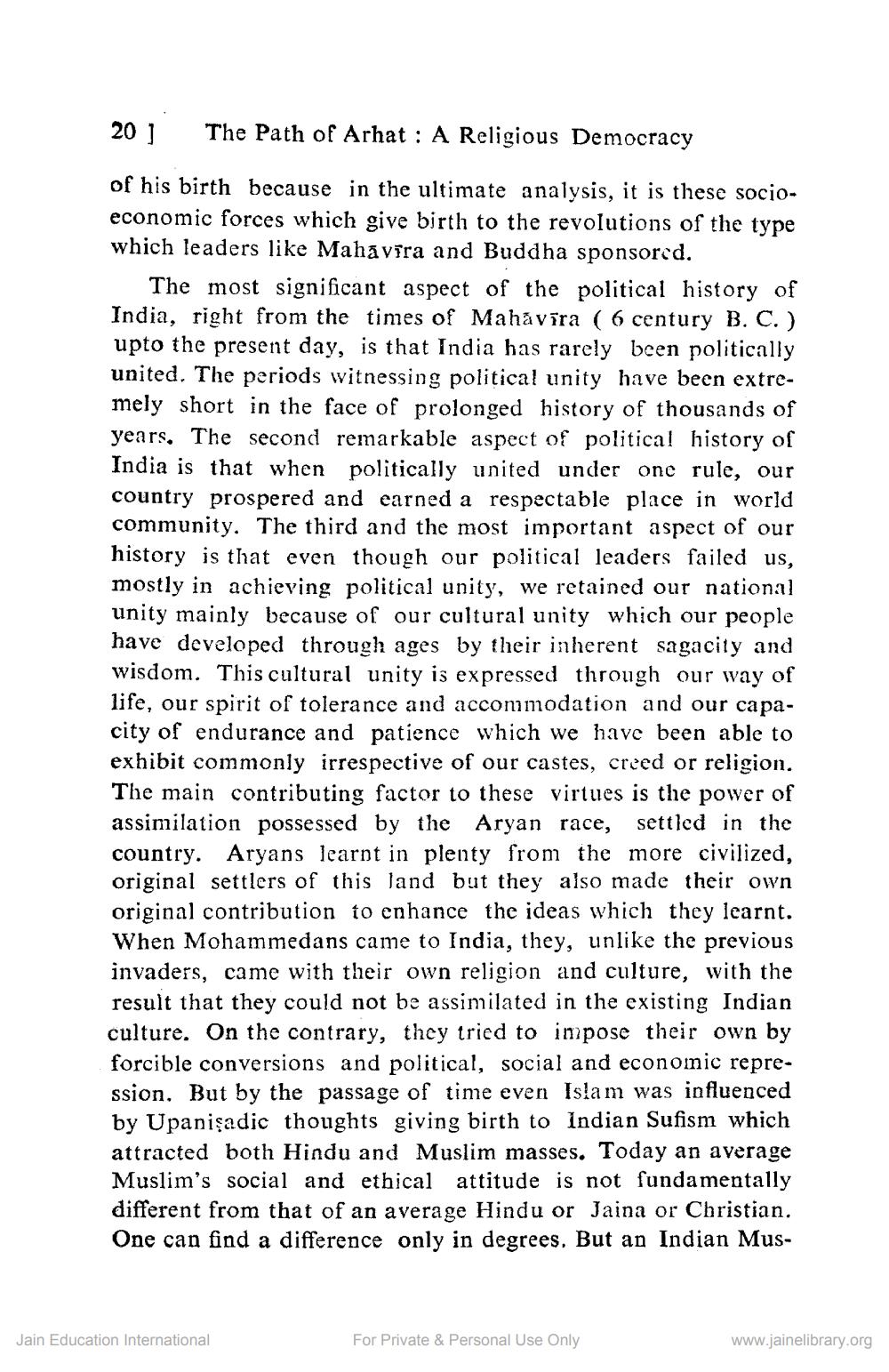________________
20 ]
The Path of Arhat : A Religious Democracy
of his birth because in the ultimate analysis, it is these socioeconomic forces which give birth to the revolutions of the type which leaders like Mahavira and Buddha sponsored.
The most significant aspect of the political history of India, right from the times of Mahavīra ( 6 century B. C.) upto the present day, is that India has rarely been politically united. The periods witnessing political unity have been extremely short in the face of prolonged history of thousands of years. The second remarkable aspect of political history of India is that when politically united under one rule, our country prospered and earned a respectable place in world community. The third and the most important aspect of our history is that even though our political leaders failed us, mostly in achieving political unity, we retained our national unity mainly because of our cultural unity which our people have developed through ages by their inherent sagacity and wisdom. This cultural unity is expressed through our way of life, our spirit of tolerance and accommodation and our capacity of endurance and patience which we have been able to exhibit commonly irrespective of our castes, creed or religion. The main contributing factor to these virtues is the power of assimilation possessed by the Aryan race, settled in the country. Aryans learnt in plenty from the more civilized, original settlers of this land but they also made their own original contribution to enhance the ideas which they learnt. When Mohammedans came to India, they, unlike the previous invaders, came with their own religion and culture, with the result that they could not be assimilated in the existing Indian culture. On the contrary, they tried to impose their own by forcible conversions and political, social and economic repression. But by the passage of time even Islam was influenced by Upanişadic thoughts giving birth to Indian Sufism which attracted both Hindu and Muslim masses. Today an average Muslim's social and ethical attitude is not fundamentally different from that of an average Hindu or Jaina or Christian. One can find a difference only in degrees. But an Indian Mus
Jain Education International
For Private & Personal Use Only
www.jainelibrary.org




